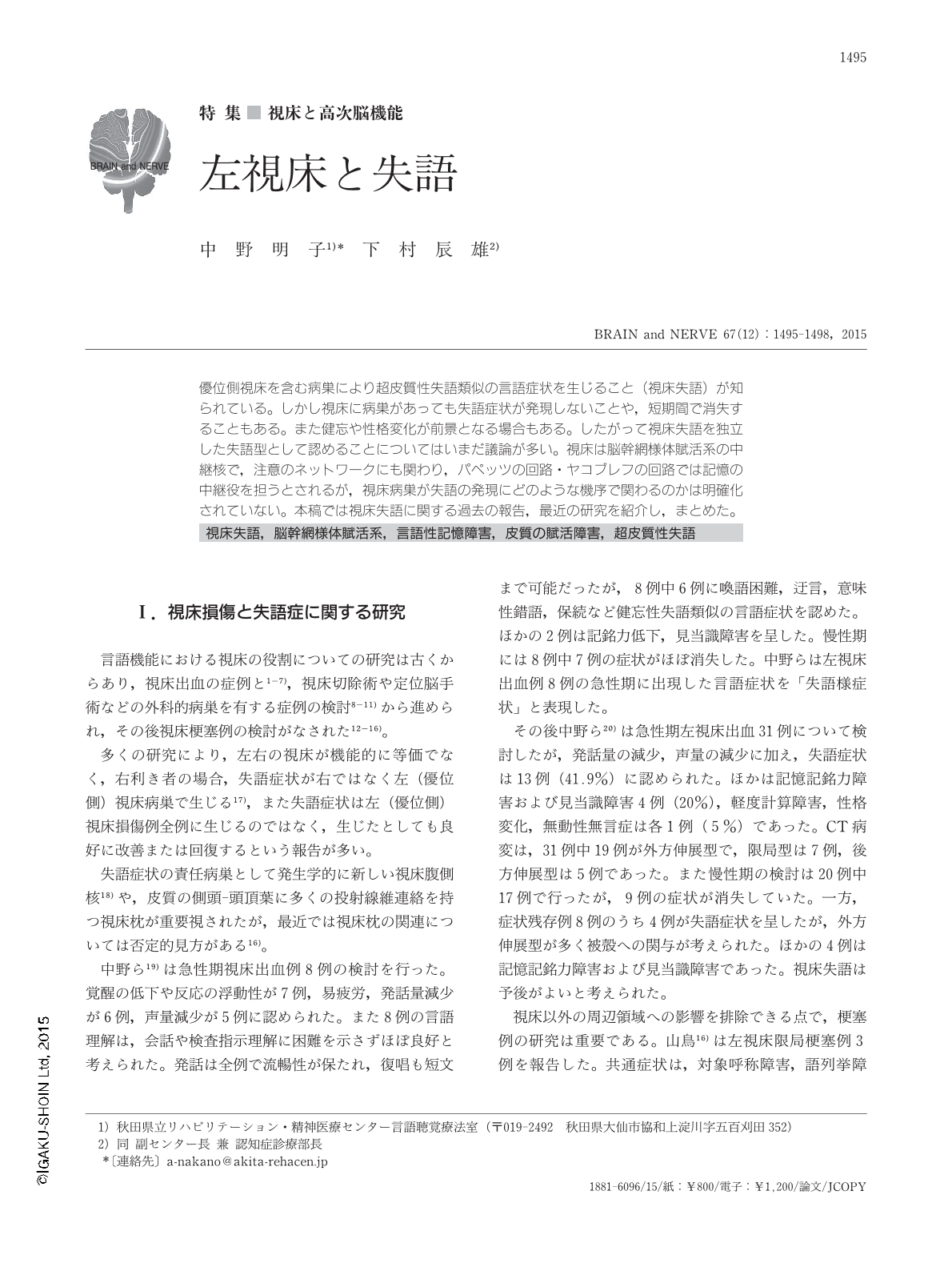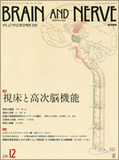Japanese
English
- 有料閲覧
- Abstract 文献概要
- 1ページ目 Look Inside
- 参考文献 Reference
優位側視床を含む病巣により超皮質性失語類似の言語症状を生じること(視床失語)が知られている。しかし視床に病巣があっても失語症状が発現しないことや,短期間で消失することもある。また健忘や性格変化が前景となる場合もある。したがって視床失語を独立した失語型として認めることについてはいまだ議論が多い。視床は脳幹網様体賦活系の中継核で,注意のネットワークにも関わり,パペッツの回路・ヤコブレフの回路では記憶の中継役を担うとされるが,視床病巣が失語の発現にどのような機序で関わるのかは明確化されていない。本稿では視床失語に関する過去の報告,最近の研究を紹介し,まとめた。
Abstract
Many studies have shown that lesions of the dominant thalamus precipitate language disorders in a similar manner to transcortical aphasias, in a phenomenon known as "thalamic aphasia." In some cases, however, aphasia may not occur or may appear transiently following thalamic lesions. Furthermore, dominant thalamic lesions can produce changes in character, as observed in patients with amnesic disorder. Previous work has explored the utility of thalamic aphasia as a discriminative feature for classification of aphasia. Although the thalamus may be involved in the function of the brainstem reticular activating system and play a role in attentional network and in memory of Papez circuit or Yakovlev circuit, the mechanism by which thalamic lesion leads to the emergence of aphasic disorders is unclear. In this review, we we survey historical and recent literature on thalamic aphasia in an attempt to understand the neural processes affected by thalamic lesions.

Copyright © 2015, Igaku-Shoin Ltd. All rights reserved.


